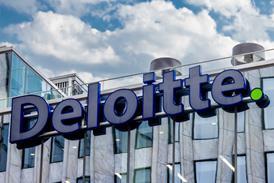PLSA Investment Conference: The Railways Pension Scheme has hired a full-time employee to investigate investment costs paid by the scheme, after discovering it was paying four times what it had thought.
Speaking on stage this week at the Pensions and Lifetime Savings Association Investment Conference in Edinburgh, Chris Hitchen, chief executive of RPMI, said the scheme was paying far higher fees in its pooled investments than the team had believed.
Investors need to think about pulling every lever available to them in order to improve returns. That’s cost, that’s risk management, that’s structure
Robert Brown, Willis Towers Watson
He said: “[While] transparency isn’t necessarily a panacea, the opposite of transparency is definitely a problem."
"When we looked at the fees that we apparently paid… into the pooled vehicles that we used to invest primarily in private markets… hedge funds etc, we found that if we added those up and dug as deeply as we could to find them all, the total was actually about four times what we thought it was.”
He added the scheme now employs a full-time member of staff to “keep digging to see what else we can come up with”.
“We’ve now got it so it’s only about three times what we thought it was, it’s probably still a lot,” he continued.
Hitchen said the low-return investment environment prompted the scheme to revisit its processes with a view to finding marginal gains that could be implemented.
“We did simplify our external manager arrangements,” he said, “but we still partner with a lot of fund managers and we continue to do so where there is a value-adding relationship for both sides.”
He encouraged schemes to revisit their own investments to find ways to minimise costs without sacrificing returns, giving the example of a move away from active equities within the Railways Pension Scheme.
“In quoted equities one of our [steps] is that we moved from traditional active portfolios to what we don’t call smart beta portfolios... I’m not saying they’ll be better, but they’re certainly more transparent and we understand how they work, and actually they are cheaper.”
Cleaning out the cobwebs
Robert Brown, chair of consultancy Willis Towers Watson’s global investment committee, said schemes need to do everything in their power to improve returns for members.
“Investors need to think about pulling every lever available to them in order to improve returns. That’s cost, that’s risk management, that’s structure.”
However, Andrew Stephens, managing director at asset manager BlackRock, said asset allocation is the most important thing schemes need to focus on.
“Getting the asset allocation right has got to be the most important decision that trustees make, followed some way after by the implementation decisions, timing, active or passive management and, indeed, about which manager to use.”
Competition in the market is one way to drive down pricing. Stephens said there are three conditions to be met for a market to be competitive: choice, differentiation between the options, and client willingness to change between these options.
“In my view, inertia is one of the things that has got us into this situation that we’re in," he said.
"How do we find ourselves in a situation where the average hedge ratio is 40 per cent; where most pension schemes are able to liquidate huge swaths of their portfolio within a week or a month, thereby ignoring attractive illiquidity premia; where adviser appointments seem, if not permanent, extremely long-term; and where clients extend advisory mandates into asset-management mandates without open tender?”

















